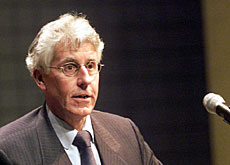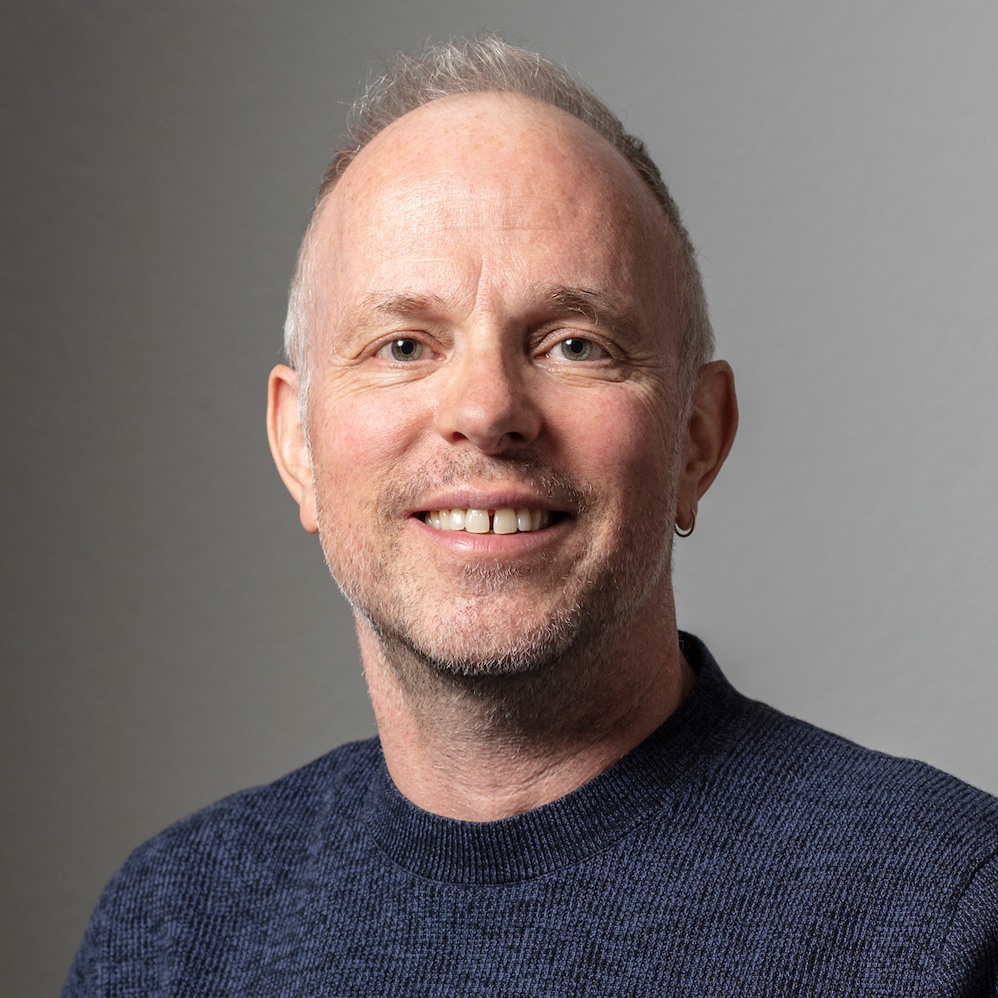Swiss writer wins European Essay Prize

The Swiss writer and literary critic, Peter von Matt, has won the Charles Veillon European essay prize for his book, "The Blue-Ink Swiss Confederates".
In his book, von Matt guides the reader through the history of Swiss literature and its relationship to politics.
The retired professor of literature is considered to be one of Switzerland’s best contemporary writers.
Christian Raaflaub spoke to Peter von Matt about Switzerland and Europe.
swissinfo: Politically speaking there is quite a distance between Switzerland and Europe, but by winning this prize you have brought us closer to Europe. How does it feel to be welcomed into the circle of well-known modern European writers?
Peter von Matt: It’s a wonderful feeling. Actually, Swiss artists and creative people have always had European connections. Switzerland is not culturally distant from Europe – it’s rather a vibrant and integral part of it.
Switzerland has no independent culture. Swiss people have always done cultural work and the country has always been closely linked to Germany, France or Italy.
swissinfo: You are the fourth Swiss to receive the Veillon Prize. Is there potential for more?
P.v.M.: There has always been great potential in this country. These prizes are like a lottery and it is impossible to use them as a reference to compile a list of top authors.
swissinfo: Now that you have won this important European prize, will you soon be following in the footsteps of Dürrenmatt and Frisch?
P.v.M.: (Laughs) No, of course not. After all, this prize is for prose essays, for non-fiction, which still has some literary quality. Traditionally, the essay receives far less attention in Switzerland than in England or France, where essays are an integral part of literature.
Compared to these countries, we still think of literature as poems and novels and plays, and nothing more. In my opinion, literature is a language that has been produced with thought and attention. And this is possible in any genre.
swissinfo: Is the boundary between journalism and fiction too narrow in Switzerland?
P.v.M.: Yes, it’s too narrow. There are journalists, who have been incredibly creative in some of their work and can actually be compared with authors. But there are also great writers, who write journalistic articles for the public. People like this have always been around – in Switzerland and elsewhere.
swissinfo: Does Switzerland have a literary voice in Europe?
P.v.M.: Switzerland has always had a voice in Europe but it’s the voice of the individuals. It wasn’t only Giacometti, who gave Swiss sculpture a voice in the world of art.
Giacometti is one of the best artists of the 20th century and as a Swiss national I am proud that he was one of my compatriots. However, to say Giacometti represented the essence of Switzerland seems to be the wrong conclusion to me.
swissinfo: How do you assess the influence of Swiss intellectuals in Europe?
P.v.M.: This is similar – if an intellectual is important, Europeans will not necessarily perceive him as a Swiss straight away. One might be aware that he is Swiss, but primarily he is a person who has achieved certain things.
The actor Bruno Ganz is another example in the world of theatre and film. Everybody knows he is Swiss. He is one of the greatest, if not the greatest German-speaking actor today. However, the most important thing is not that he is Swiss but that he is a great actor from Switzerland.
This is also true for architecture, which is probably one of the most famous Swiss cultural exports. The most successful Swiss architects around the globe are good, important, exceptional, modern architects and everybody knows they are Swiss, but the are not known for the “Swissness” but for their great architecture.
swissinfo: Do our multi-lingual environment and federal system produce a different type of literature?
P.v.M.: I don’t think so. Swiss authors write in their mother tongue, which means in a language that reflects their traditions.
This principle applies to Switzerland and to any other European country. The tradition of the German language, which is spoken and written in Austria, Prague, the whole of Germany and in German-speaking Switzerland, is something that differentiates the writer.
The fact that Frisch or Dürrenmatt lived in a country where French and Italian are also spoken had no importance or influence on their work.
I believe this also applies to the writers from Ticino, some of whom are also well known in Italy.
swissinfo: You write non-fiction literature with belletristic elements. Is that something typically Swiss?
P.v.M.: No, I wouldn’t say that. Since the modern intellectual was born in the 18th century there have always been intellectual people and writers, who wrote about literature.
They write as critics or reviewers but also as authors, who discuss and write about the world of literature, its basic issues and art in the context of literature.
In Switzerland, this tradition has been linked to important names. I am thinking here of Max Richner, who was one of the most important literary figures in the German-speaking world in the post-war period. There have also been similar writers in French-speaking Switzerland.
swissinfo: Do Europeans expect Swiss authors to write non-fiction and essays rather than monumental love stories?
P.v.M.: Of course not. In fact, Europe doesn’t expect anything from Switzerland at all. But Europe seems to be pleased when something good comes out of Switzerland.
In return, we do not expect anything in particular from Denmark. But we are also pleased to acknowledge when Denmark produces a brilliant writer – and then we think, “well – the Danes are really something”!
swissinfo: The Swiss have a problem with their self-image, they see themselves as a humourless country rather than an extrovert one. What should Swiss intellectuals do to help Switzerland improve its image in Europe?
P.v.M.: I think this fear of not making a good impression is in itself a problem. After all, you are what you are. And in the long run, substance prevails. There is no need for cosmetics or special public relations.
Of course, on the one hand, there are certain Swiss clichés but there are also French, German, and Italian clichés. So this is relatively insignificant.
In addition, we are always looking for good quality and substance in arts, the economy and production in general. And if we find good quality we acknowledge it and say: – “Oh, this is from Switzerland or from another country.”
Reading excellent German writers does not necessarily mean that we forget about the trivial clichés of the Germans.
And vice versa, the Germans take careful note of the good things coming out of Switzerland – artistic and cultural. And yet in spite of that, they still have their stereotypical ideas about us.
It’s simply a part of human nature that one generalizes about the neighbours. This is taken far too seriously in Switzerland.
swissinfo: As a Swiss-German writer how do you feel about the excessive use of dialect and the deficiencies in High German in Switzerland (acceptance abroad)?
P.v.M.: Swiss authors writing in High German are as accepted in Germany as German writers. An excellent Swiss author can write as well as someone who grew up in Germany. That’s not really a problem.
swissinfo: How can we make the written language more attractive to Swiss-Germans without them worrying about losing their identity?
P.v.M.: As far as the quality of High German in Switzerland is concerned there is room for improvement. On the one hand, we have the dominance of English, and on the other hand, we have a strong Swiss dialect.
We invest more time and effort in learning English and speaking our Swiss dialect than we invest in improving our German language skills. This is indeed a problem.
swissinfo: How can you rekindle the desire to speak High German?
P.v.M.: I think writing good books would help. We should also separate the use of dialect and the use of High German. Our High German must be impeccable.
In schools, parliaments, newspapers, in the public and the media this is already the case. We know where to use High German and where to use Swiss dialects. These borders must not be watered down.
swissinfo-interview: Christian Raaflaub
The Charles Veillon European essay prize was founded in 1975.
It is awarded to works representing, “a witness to our time or a fertile criticism of contemporary societies, their life-styles and their ideologies”.
The prize was awarded on January 16 in the Lucerne Culture and Congress Centre.
Peter von Matt is the fourth Swiss to receive the prize of SFr30,000.
Previous Swiss winners include: Jean Starobinski, Iso Camartin and Peter Bichsel.

In compliance with the JTI standards
More: SWI swissinfo.ch certified by the Journalism Trust Initiative


You can find an overview of ongoing debates with our journalists here. Please join us!
If you want to start a conversation about a topic raised in this article or want to report factual errors, email us at english@swissinfo.ch.